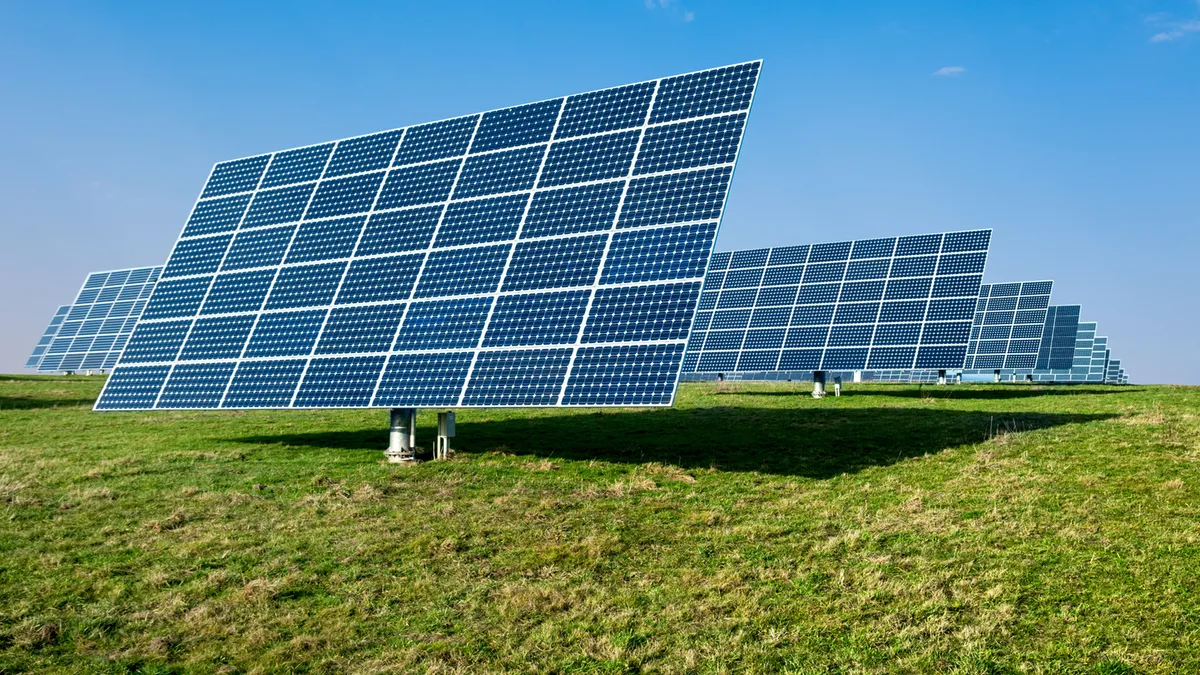Dive Brief:
- Nine Ohio businesses that collectively employ more than 25,000 workers are urging state lawmakers to reinstate energy efficiency and renewables targets that were frozen in 2014.
- Organized by sustainability advocate Ceres Inc., the companies include Campbell Soup, Clif Bar, Gap, Nestle, Whirlpool and others.
- The freeze on Ohio's clean energy standards is set to expire at the end of this year, but lawmakers are considering changes that would make the reinstated RPS voluntary.
Dive Insight:
While lawmakers consider pulling the teeth from Ohio's clean energy laws, executives across the state petitioned for more aggressive policies and touted the work their own organizations have already done.
Clif Bar & Co., for instance, uses 100% green power in its bakeries and headquarters, and said it is committed to 50% more green power in its supply chain by 2020. "With facilities in Ohio, we hope to see legislators reinstate the state’s renewable energy and energy efficiency standards," Elysa Hammond, director of environmental stewardship for Clif Bar, said in a statement released by Ceres.
Gap Inc. wants to reduce its greenhouse gas emissions 50% by 2020. Director Environmental Impact Christina Nicholson said "as a company with a large presence in the state, energy efficiency and renewable energy is important to our business."
Campbell's has developed a solar project at its Napoleon, Ohio, site that is expected to save $4 million and eliminate 250,000 metric tons of greenhouse gas over the purchase agreement’s 20-year period.
“Now is the time for lawmakers to strengthen Ohio’s energy efficiency and renewable energy standards,” said Alli Gold Roberts, policy manager at Ceres and one of the organizers of the business group. “These standards are good for business, and failing to reinstate them will send the wrong signal to companies and investors throughout the state.”
State lawmaker Sen. Bill Seitz (R) has proposed to amend legislation to technically bring back the requirements but with no compliance mandate. The revised law would require utilities to meet clean energy requirements every three years, but leaves the current standards in place; utilities would need to reach 6.5% renewable power in 2020, and 9.5% in 2023.
Ohio's energy mandates passed with strong support in 2008, directing utilities to source a quarter of their electricity from alternative sources (including nuclear) by 2025, with half that amount coming from renewables. They were also directed to cut power usage 22% by that time.















